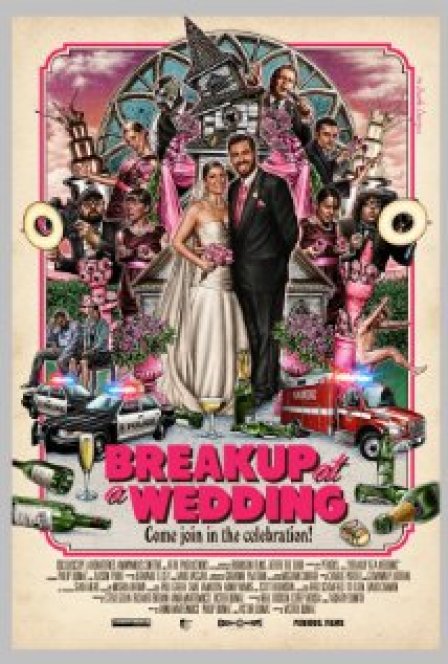My earliest reference point for a wedding in a film is The Muppets Take Manhattan: On a Broadway stage, in the midst of a theater production, Miss Piggy tricks Kermit the Frog into marrying her. The performance was a ruse in which the wedding was disguised.
As a child, it was a colorful and lovely scene. (I always loved when the Muppets and Sesame Street came together for anything.) It set in my mind an idea that was reinforced by dozens of stories (from the wedding parables in the Gospels to Here Is Where We Meet) that weddings were the locus of a wild unity, that is, the superfluousness of community and love.
Although I still sing along to the songs, as an adult I feel differently. No one, not even a Muppet, should be tricked into marrying someone. But weddings, or love in general, can be full of subtle manipulations.
I don’t believe that these manipulations are always insidious. The truth is that people want love, or companionship, or to be married (or a combination thereof). And the truth is that people will do what they need to do to possess a semblance of these things. And in these achievements (whatever they’re worth), it is the fact of a stage, or a camera, or whatever showcases your love, that really counts.
Breakup at a Wedding is all about the cameraman, and I think it’s telling that the first time we really see the groom, Phil (Philip Quinaz), he’s singing a song already made for the Muppet’s Broadway stage: Somebody’s getting married!
Through the cameraman, we’re told a story of Allison (Alison Fyhrie), the bride, and Phil, and the drama the ensured throughout their non-wedding-wedding. With doubts, Allison decides that she does not want to marry Phil. She requests that they continue with the wedding as planned, anyhow, to appease friends and family. As Phil tenuously approves, he still plots to win her back.
It’s a story with which I’m somewhat familiar, actually. It was with some reluctance that I watched the film at all, and I was surprised with how affecting (and, frankly, real) some moments in the film actually were. There is, for instance, the moment when Allison confesses to Phil that she doesn’t want to get married. While I don’t remember what I threw (if anything), or at what (if anything), I remember the gesture well. I remember the anger, and the pitiful attempts to keep imagining the possibility of a possibility. Worst of all, I remember what it was like to want to nurture a collapsed world, and salvage anything from it that I could. That might be where I want my identifications with Phil end, though.
Although Phil is a pretty likable character, he seems mostly unaware of his problems: particularly, his obsession with distractions (especially his iPhone), and with his appearances (Phil’s gesture toward winning back Allison is finalizing the purchase of a house — that is, another stage upon which their love can appear to take place). The truth is that wedding is Phil’s, and not Allison’s (even her requests, the chapel for example, are belittled). So the story revolves around his losses and complaints, his money, his cake (in the shape of an iPhone), his boss and his best man, his plans, and his interpretations. In the end, the problem, the reason for the breakup, is not that Phil is totally self-involved; the problem, instead, is that Allison has “daddy issues.” While both can be true, it’s clear throughout which story the cameraman privileges.
For example, there is this scene late into the fraudulent wedding: Before the cutting of the cake, Allison leaves the wedding party. Phil stands around by his cake waiting for her. Anxiously, angrily, he cuts the cake on his own, and, in effect, performs the cake feeding ritual with himself. With cake over his face, he looks out, pitifully, onto everyone watching, and walks away humiliated. In the meantime, Allison is alone, up the road, in wedding attire, stuffing her face with donuts in a shabby shop. Her binging is captured entirely by a lone security camera. Apparently, a cameraman didn’t see it fit to follow her.
That’s not to suggest that Allison takes a backseat throughout the entire of the film, but when she and Phil finally wed (this is a RomCom, people), it feels more like his victory than the beginnings of a marriage. Okay, maybe Allison does have daddy issues. Maybe she is a people pleaser. Maybe she’s in love, too. But in the end — Somebody’s getting married! — it feels as though it’s Phil’s tenacity that is rewarded, when it remains unclear as to whether or not the tenacity was totally earned, or appropriate, to begin with. Or maybe I’m wrong. I don’t know. Love is fucking weird, and we salvage everything from its wake that we can. In the end, who am I to fault Phil and Allison? I only know what the camera shows me.

